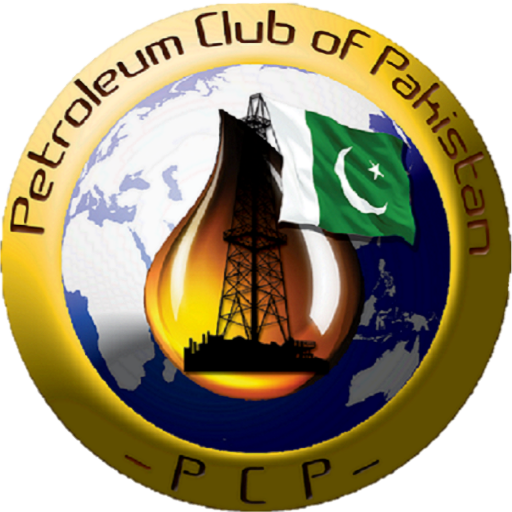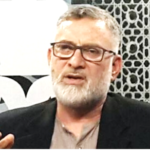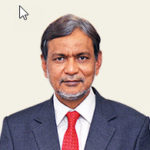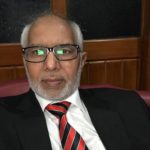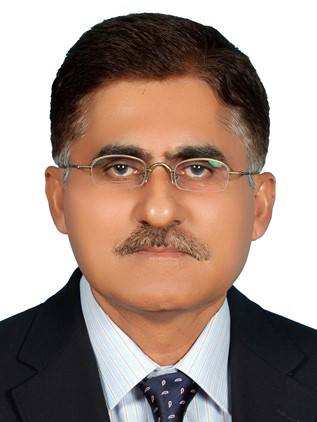
Dr. Mohammad Shahid Rahim
Freelance consultant, specializing in sustainable energy and power system planning and development
Electric supply and delivery system in many ways is like the human cardiovascular system. Proper functioning of each is vital for the health and vitality of its respective system. When in good health, we are not even conscious of our cardiovascular system and notice it only when it starts to malfunction. Many of us are shocked when our test reports reveal how
badly we have been ignoring our health. The recovery invariably involves regularmedication, in severe cases a major surgery, and radical changes in our life routines.
Secure, reliable, affordable, and sustainable power supplies are to modern society what healthy cardiovascular system is to human body. Power supply and delivery system is among the most critical, complex, and capital-intensive of infrastructures for any country. It’s important as it helps a country in providing the basic amenities to its citizens and turning the wheels of its economy. It’s even more important as it also underpins the functioning of all the other infrastructures, facilities, and services.
The mess we see in our power sector today hasn’t struck us out of the blue. It’s the culmination of decades of ill-conceived policies devised and implemented on personal whims and vested interests, bypassing the regular institutional channels. The fate of our present approach to power sector reforms is a foregone conclusion unless the government wakes up to this bitter reality and reconsiders its own approach to run this enterprise.
Our power sector issues are complex, deep-rooted, and chronic, and cannot be resolved through quick-fixes and band-aids. This sector is in dire straits already and needs a systemic overhaul, not cosmetic face-lifts. The government is welcome to use any out-of-the-box or fast-track solutions, but first it must correct the fundamentals of this sector that are constantly sucking the blood of this nation and are considerably potent to defeat any future efforts no matter how promising it appears in theory.
Five pillars are essential for a viable, vibrant, and sustainable power supply and deliverysystem in the country: (i) a strategic vision at the top to guide planners and decision-makers in the downstream entities; (ii) a carefully-crafted strategic plan to realize that vision; (iii) a set of supportive and consistent policies to achieve the planned objectives; (iv) a flexible and
responsive institutional structure to effectively implement the strategic plans and policies; and (v) a competent team of managers to pursue their objectives and targets, free from any external meddling.
A moment’s reflection on the performance of our successive governments in the power sector should make it evident that they have failed the nation on every single count. But before proposing a way out of the present mess, let’s first reflect on where we stand today.
No strategic vision: “A leader is one who knows the way, goes the way, and shows the way,” declares John Calvin Maxwell, a noted American thinker on leadership. Our terminally sick and constantly bleeding power sector needed a strategic vision from our political leaders and a strong belief in that vision undeterred by any resistance on ground from bureaucracy,
political opponents, and vested interests. What we see is lack of foresight and churning out of run-of-the-mill solutions every now and then—good prescriptions for headache but not for a patient who is suffering from cancer. The piecemeal, disjointed, issue-specific, and lobbyist-driven initiatives can hardly be termed a well-thought-out and imaginative strategic vision from our leaders.
No strategic plan: “Vision without a plan is merely a dream,” says Joel A. Barker, who is credited for popularizing the term “paradigm shift” in the business world. While we do see a hotch-potch of efforts and initiatives by every government to reform the power sector, these did not form part of a cohesive and integrated strategic plan. A draft of the National Electricity Plan 2022-2026 was circulated in January last year but, to the best of this writer’s knowledge, has not been approved yet.
Policy failure: Starting with the 1994 private power policy, Pakistan has seen a streak of power sector policies, introduced at regular intervals by successive governments in their bid to attract private investment, mostly in generation. These policies failed to deliver their intended results and have led to serious unintended consequences like excess capacity, suppressed demand, runaway circular-debt, shifting of businesses to other countries, and punishingly high electricity tariffs. The latest is a Rs. 7.50 per unit hike to meet an IMF conditionality and NEPRA is hinting for even more.
When formulating public policies, effort is always made to set a clear hierarchy among different policies, from top national down to local ones. It’s also ensured that the policy for a specific sector of the economy guides those in its subsectors. Our governments have followed a reverse order and issued sub-sector policies first (for instance, ARE Policy 2019 and Electric Vehicles Policy 2019), then the National Electricity Policy 2021, and we believe it plans to issue a National Energy Policy soon.
Dysfunctional institutions: Organizations often lose their effectiveness with the passage of time as the environment around them changes. No meaningful institutional reforms were carried out in the past and this sector is still being run in the same old manner from the top. While case-study after case-study from power sector reforms undertaken over the past
three decades from around the world revealed that a critical factor to the success of these reforms was provision of reform-friendly institutional structures and capacity on ground, our leaders thought that they could squeeze space-age performance from our stone-age institutions.
Poor management: Last but far from the least, our governments needed to deploy competent teams of professionals in the various power sector entities, selected strictly on merit and for their vision, competence, and capability to materialize the governments’ vision and effective execution of their strategic plans. No step was taken by any government on such lines and these entities have been and continue to be run by ad hoc appointments, often violating merit, and ignoring the technical competence and track record of the incumbents.
To sum it up, years of poor leadership and mismanagement have brought the power sector to the brink. Our leaders must realize that time is running out for saving this sector. They must change their mindset and make the fundamental improvements that are needed and long overdue to pull it out of the abyss and put it back on a path to recovery. The rewards of having a viable and effectively functioning power sector will be countless when contrasted with the politically expedient and short-sighted remedies.
We noted in the first part of this article that years of poor leadership and mis-governance have brought the power sector to the brink and now it threatens our economy. Our leaders must change their mindset and make the fundamental improvements requisite to pull it back from the brink and put it on a path to recovery. Fortunately, some recent developments have opened a window of opportunity for us to accomplish this objective.
Small power plants have emerged that beat the cost and performance features of large plants. Renewables technologies, even without government support, are proving competitive with conventional options. Smart grid technologies are unlocking new opportunities for squeezing more value from the existing assets and also for managing demand. Affordable battery storage is enabling consumers to reduce, and even eliminate, their grid dependence by coupling these with rooftop PV systems. Electric vehicles (EVs) are also opening new vistas for their dual role as loads and sources of supply.
The future of this industry is expected to be ruled by small, distributed, and renewable power supply schemes that could be best managed by liberalizing and devolving planning and decision-making in its various functions. Our leaders should use this opportunity to phase out our dependence on large, capital-intensive, and import-dependent supply
schemes and rebuild the power sector on a distributed grid concept.
Three essential features of a viable power system are its “affordability”, “security”, and “sustainability”. Carefully planned distributed and renewable-based supplies can outperform the traditional centralized schemes. With over 25 percent of our population still without electricity and the existing consumers choking under prohibitively high electricity
prices, demand-oriented supplies at lower costs can provide a sigh of relief to consumers.
These systems, due to their reliance on ubiquitous renewable supplies, will add to energy security of the country which can be even further enhanced by promoting their local manufacture. These will be sustainable not just because they do not degrade our ecosystem but also because they will promote substantial employment in the country.
New vision: The country’s new vision for the power sector should include at least five strategic threads: (i) it should be alive, responsive, and aligned to new trends; (ii) it should provide enabling regulatory and business frameworks to reorganize this sector along open, transparent, fair, and competitive lines; (iii) it must replace the traditional business model
with a more innovative, liberal, and flexible model in which all players can participate fairly; (iv) it should shift decision-making closer to the end-users; and (v) it should catalyze a visionary R&D program to inform evidence-based decision-making and policy formulation.
Strategic electricity plan: The government will need to convert its new vision into a strategic plan to gradually phase out central-station conventional power supply schemes and substitute these with small-scale renewable power supply options at demand-ends or as close as possible to end-users of electricity. The draft National Electricity Plan referred to in
the first part of this article was a good first step and deserves to be further improved and issued by our government.
This plan must be unified, integrated, and holistic by clearly identifying the most appropriate blending of various energy carriers, including electricity, in serving the various energy-based needs of the people, businesses, and industries. It will also need to transcend the typical but largely artificial boundaries among the various sectors of the economy and their traditional
reliance on specific fuels.
Improved policy frameworks: The government should streamline and institutionalize the policy formulation and implementation process in the country by making it transparent, objective, and consultative. Every proposed policy must be screened through a specified criteria such as efficiency, cost-effectiveness, and equitable distribution of its cost and
benefits among various stakeholders. Specifically, the compatibility of the existing institutions for effectively implementing these reforms must not be overlooked.
The existing policies should be reviewed and, if need be, improved to encourage the deployment of distributed energy resources and discourage mega projects, especially those based on foreign technologies and fuels. These policies should also encourage deployment of storage technologies in the system to enhance the value of renewable energy technologies while relaxing their intermittency and variability constraints. Similarly, besides
being a source of demand, battery packs in EVs can also support the power grid in more economical ways than the traditional solutions.
Consistency of policies among the major sectors of the economy and sub-sectors and their stability over time are two pre-requisites for converting the strategic vision into reality as they will raise investors’ confidence, reduce risk perceptions, and increase investment flows.
Institutional structure: There’s strong evidence that a primary cause of failure of Pakistan’s previous efforts to power sector reforms has been its failure to change the institutional structure and capacity requisite for their implementation. Any new effort, therefore, must acknowledge the critical role of the institutional capacity and managerial competence.
Our government should devolve decision-making in the power sector by moving it as close as possible to the DISCOs and end-users, by gradually lateralizing the existing vertical hierarchies and replacing these with those that are open and flexible. This is imperative as DISCOs are in a much better position to grasp the dynamics of electricity demand, the potential of serving it through supply- or demand-side solutions, and the viability of
different strategies for this purpose.
The government and regulator’s role in the new setup should restrict to just setting the rules of market participation. They should avoid micro-managing the business. Both should let go of their present “command and control” mindset. Instead, they should take a more liberal approach to encourage small power producers and consumers assume more active
role in this sector’s activities.
Professional management: “Good organizations require good managers”. Managers are the true change-agents of organizational transformation. They are to lead the new processes and work-streams and guide their successful implementation. We cannot over-emphasize the importance of competent professional managers in the success of any future power
sector reforms. As rightly advised by a Harvard University professor, Georges Doriot, “A Grade A management with Grade B plan is preferable to a Grade B management with a Grade A plan.”
Supportive R&D: The government will also need to catalyze, with sufficient seed-funding, a visionary R&D program to promote distributed and renewable technologies, by suitably segregating it among the local institutions. This R&D should aim to provide the presently missing, but requisite, information base to promote evidence-based decision-making and policy formulation in the country.
This R&D should focus on issues such as: (i) understanding consumer behavior with respect to choice of built environment, selection of appliances and their post-purchase usage; (ii) adoption of already commercial supply and demand technologies, identifying any existing
barriers to their uptake, and how these can be removed; and (iii) renewable resource distributions at different sites, their correlations with electricity demand, and the most feasible ways to match distributed supplies with demand.
Pakistan is arguably at an extremely difficult point in its history as far as energy is concerned. It’s time for our leaders to act, and act boldly, to deconstruct the monolithic, inefficient, and poorly managed power sector and reconstruct it on the five strategic pillars suggested in this article by embracing the new market trends which hold great promise for setting it on affordable, secure, and sustainable footings.
